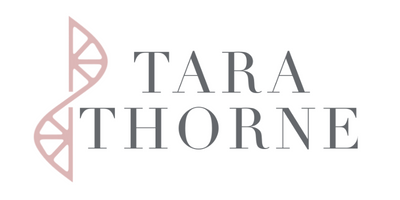Citrate… bisglycinate… threonate…. when it comes to magnesium there are so many options so which one is the right one for you? I know there are a lot out there, and magnesium is a mineral that I put almost all my clients on, so you’ll likely benefit from it too. You see, our soil is very deficient in magnesium due to poor farming practices, (hence our food is deficient) and we’re further depleted in magnesium due to stress, poor diet, and bad lifestyle decisions, (such as smoking and drinking too much). So if you’re a little confused by all the magnesium options out there I thought I’d break them down for you to give you some of the best choices and their respective benefits….
Magnesium Bisglycinate
I love this form of magnesium, which is bound to the amino acid glycine. This form of magnesium is highly bioavailable but I mostly love it for its women’s health benefits. You see, magnesium in and of itself is an important co-factor in the optimal functioning of COMT – a enzyme responsible for the detoxification of estrogen from the body. Magnesium is also an anti-inflammatory mineral that is calming and helps with the production of progesterone, (and a lot of women have too much estrogen and not enough progesterone in their body). But when it comes to this particular form of magnesium it’s the bisglycinate, (glycine) that also benefits women. You see glycine is a calming neurotransmitter, (and who doesn’t want more “calm” in their life?!) that is also involved in estrogen detoxification via the process methylation. So this magnesium is a great choice is you suffer with anxiety, PMS, or estrogen dominance symptoms.
Magnesium Threonate
Magnesium threonate is a combination of magnesium and L-threonate. L-threonate supports magnesium in crossing the blood-brain barrier and it also aids in the bioavailability of magnesium. This form of magnesium has been shown to improve short and long-term memory, enhance learning abilities, improve sleep, improve anxiety and depression, and combat cognitive decline. Basically, it’s very neuro-protective. If you have neurological symptoms but you’re taking a different form of magnesium maybe switch to magnesium threonate and see how it may help you. I’ve used magnesium threonate to stop a headache in it’s tracks before. Additionally, some studies have shown magnesium threonate to be more bioavailable than magnesium citrate or glycinate.
Magnesium Citrate
Magnesium citrate is magnesium that’s bound to citric acid and it’s ok but I don’t usually recommend it unless there are oxalate or kidney stone issues, (because it can aid in oxalate metabolism). It can also be a laxative too, so keep this in mind if you don’t want it’s laxative benefits. It has pretty good bioavailability at around 25-30%.
Magnesium Malate
This form of magnesium is bound to malic acid. Malic acid is a key component of the Krebs Cycle, which produces energy in the body therefore, magnesium malate is a good option for those with chronic fatigue, mitochondrial dysfunction, pain, or fibromyalgia.
Magnesium Taurate
This type of magnesium is excellent for anyone who has cardiovascular issues thanks to the taurate, which converts into the heart-loving amino acid; taurine. Taurine has antivasospastic, antihypertensive, platelet-stabilizing, anticonvulsant and hypoxia-protective properties. Taurine also plays a role in bile synthesis so if you have any gallbladder issues this is also a good choice of magnesium for you.
Magnesium oxide and magnesium carbonate are garbage – stay away from these forms of magnesium. They have very low bioavailability and typically act as laxatives.
I hope this helps you make the right decision when it comes to which magnesium to choose!
In happiness and health,





